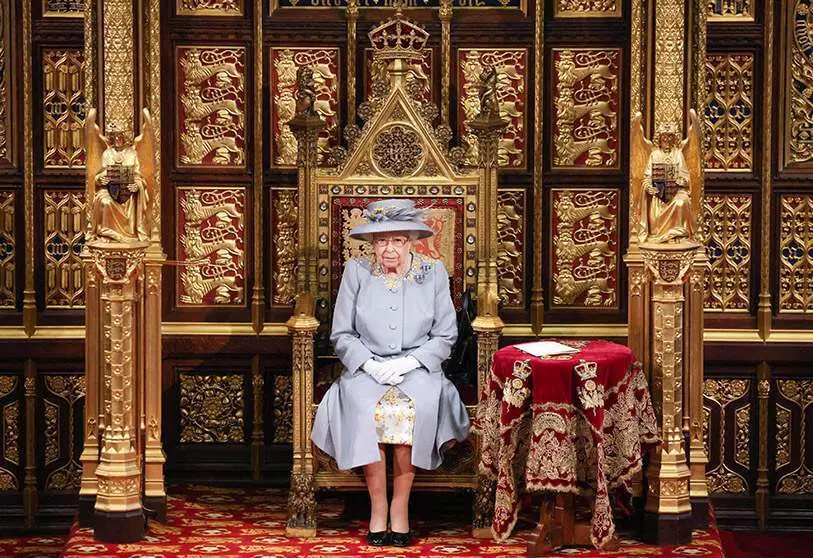Unbeatable reign, unstoppable institutions

The fact that the whole planet is watching the transition between Elizabeth II and Charles III shows that the institution of the British Monarchy is much more than the system of government of a great country, which until the end of World War II was the empire that ruled the waves of the ocean sea and dominated the vicissitudes of the mainland in at least four of the five continents.
The King reigns but does not rule. Yes, but the moral authority of the institution, especially when exercised with Elizabeth II's professionalism and sense of duty, rises so high above the firmament that it makes the United Kingdom a power far beyond its current political and economic capabilities in the global concert.
As so often happens in the great events of history, nothing and no one foresaw that Queen Elizabeth II of England would not only consummate the longest reign in history, but also the one that would endow the institution of the British Monarchy with a moral authority far beyond that achieved by her predecessors, just when the United Kingdom ruled the world at the height of its great empire.
The 40th British monarch since William the Conqueror thus leaves an unprecedented mark, but also provides a unique empirical experience in the eternal and heated monarchy-republic debate in which all political tendencies have successively clashed since the French Revolution of 1789.
As is always the case when it comes to exemplifying different theories, there is no better contribution than that provided by the protagonists. In this respect, the case of Elizabeth II is a rare case of unanimity. No one, absolutely no one, doubts her professionalism, her sense of duty, her firm will to put the interests of the country and the institution before those of her own situation and personal interests. Her sense of dignity, her absolute and total dedication to her role as the embodiment of the representation of all the people, has achieved something that may seem unusual: to demonstrate the enormous usefulness in today's world of one of the most anachronistic institutions in the world: the British monarchy.
It is not going to be easy for his heir, Charles III, who is called to reign, that is, to work, when he is well past retirement age. His mother's legacy is far above political allegiances. Another anachronism, when all the examples seem to show that political programmes, or rather, the executive actions of government, always have a markedly partisan bias.
Elizabeth II, through herself or through intermediaries, has also achieved another no less important milestone: keeping the UK in the global spotlight. Whether it is the wild parties at 10 Downing Street, which have finally cost Boris Johnson his prime ministership, or the laborious process of choosing a successor as head of the Conservative Party, or the Queen's jubilee, or the funeral of her husband, the Duke of Edinburgh, and now her own death, the United Kingdom is constantly making the front pages of newspapers around the world. Now, with the funerals of the longest reigning queen in history, the enthronement of her successor and speculation about how long he will remain on the throne, the truth is that all these vicissitudes are overshadowing issues such as the war in Ukraine, the energy crisis and even the upheaval caused by inflation and the unstoppable rise in prices.
The Royal Court of Windsor is accustomed to monetising absolutely everything, and this event, however mournful it may be, will not fail to pay dividends both for the Royal Court and for a United Kingdom that appreciates as never before the treasure of having an extraordinary political and moral asset, its Monarchy, well exalted by the now historic figure of Elizabeth II.

